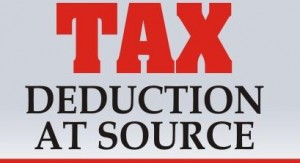Process of availing immunity of TDS default u/s 201 of the IT Act

There is an increase of Defaulting in TDS submissions. And so there is an increase in applications for immunity from accountants. In the cases in which the incumbents fail to discharge their duties regarding Tax deduction at source (TDS), the doubts persists regarding the benefits of Voluntary Disclosure of Income Schemes (VDIS).
The Income Tax Act 201
As per the Income Tax Act 201, (1) If any person and in the cases mentioned in section 194, the principal officer and the company of which he is the principal officer fails to deduct or fails to pay the tax after deduction as required under this Act, he or the company shall, without prejudice to pay any other consequences which he or the company may incur, be deemed to be an assessee in default in respect of the Income Tax.
The law provided that no penalty shall be charged under section 221 from such defaulters unless the assessing officer is satisfied that such defaulter, as the case may be, has failed to deduct and pay the tax without good and sufficient reasons.
(1A) Without prejudice to the provisions of sub-section (1), if any such person, principal officer or company as is referred to in that sub- section fails to deduct or fails to pay the tax as required by or under the Act, such defaulters shall be liable to pay simple interest at the rate 15 (fifteen) percent per annum on the amount of tax from the date on which such tax was deductible to the date on which the tax is actually paid.
(2) If the tax has not been paid to the department as mentioned above after it is deducted, the amount of the tax together with the amount of simple interest mentioned in 1(A) above shall be a charged upon all the assets of the defaulter as the case may be, referred to in sub-section(1).
Problems regarding TDS defaults
The TDS default problems can generally be in two segments. (1) In which the persons who receive payments liable to TDS like salary, interest, commission etc, declare such incomes. (2) The payment disbursement has been made by the payer without deducting tax at source.
Such cases occur where TDS has not been done or paid to the government account in time because of a legitimate confusion regarding legal provisions or otherwise. The defaulters can clear the evasion by paying the required amount to the government account.
The coverage of defaults and the benefits provided
TDS Defaults are considered as follows:
- Failure in TDS on the salaries and allowances by the employers whether Indian or foreign for the services rendered in India by the employees.
- Any failure in complying with the requirements in connection with TDS will attract interest under section 201(1A);
- An assessee as a defaulter is liable for penalty under section 221 and 271C for failure in TDS. In such cases, prosecution proceedings can be initiated under section 276B.
Nevertheless, in order to support voluntary compliance, the board has decided not to initiate prosecution proceedings under section 221 and 271C for levy of penalties and proceedings under section 276B where the employers voluntarily pays the whole due tax under section 192, with interest under section 201(A).


 ITAT Amritsar: No Section 269SS Violation for One-Time Cash Payment Before Sub-Registrar
ITAT Amritsar: No Section 269SS Violation for One-Time Cash Payment Before Sub-Registrar  Tax Officials Unleash Digital Dragnet: How New Raid Powers Redefine Privacy, Property Rights in India and likely to Fuel Corruption
Tax Officials Unleash Digital Dragnet: How New Raid Powers Redefine Privacy, Property Rights in India and likely to Fuel Corruption  Income Tax Department Rewards for Reporting Tax Evasion: A Comprehensive Guide
Income Tax Department Rewards for Reporting Tax Evasion: A Comprehensive Guide  Forfeiture of Gratuity by Employer- What are the Remedies for an employee- Can employer be challenged?
Forfeiture of Gratuity by Employer- What are the Remedies for an employee- Can employer be challenged?  Employer can forfeit gratuity of an employee in case of moral turpitude
Employer can forfeit gratuity of an employee in case of moral turpitude  Diving Deeper: The Impact of the New Tax Bill on Dairy and Farming Income
Diving Deeper: The Impact of the New Tax Bill on Dairy and Farming Income